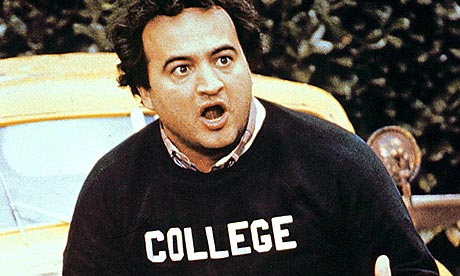Kate McGee reported this morning on KUT NPR in the radio piece Austin Charter Focuses on College Prep Despite New Grad Requirements that KIPP Austin has set up a pretty sweet deal with St. Edwards University. Listen to the KUT story here.
St. Edward’s University is partnering with KIPP Austin Charter school to help more of its students go to college and get a degree. The charter school KIPP Austin is announcing a partnership Thursday with St. Edward’s University, in an effort to promote the charter school’s mission to prepare students for college and help them receive a degree. The private university in South Austin will join more than 40 other colleges and universities nationwide that partner with the nonprofit charter school – including UT Austin and the University of Pennsylvania…
Through the new partnership, St. Edward’s says it will accept up to 10 qualified KIPP applicants each year, waive application fees for KIPP students and provide scholarships for at least three KIPP alumni annually. KIPP also appoints one of its alums enrolled at St. Edward’s to act as a student ambassador to help new students learn the ropes. Many KIPP graduates are the first in their families to attend college.
The backdrop of the conversation is that KIPP and wealthy school districts are gearing up to continue focusing on distinguished diplomas that position their students for college. Kudos to KIPP for:
“There are some kids that say ‘I don’t want to go to college,'” says Paloma Medellin, an eighth grader at KIPP. “But teachers say ‘No, you’re going to college. You need it and it’s going to get you somewhere in life.'”
Also kudos to Superintendent Meria Carstarphen for stating in the piece:
Knowing that these things are getting so much earlier in their academic careers, as early as middle school, with the endorsements and everything, we would far prefer our students be on track for a distinguished level of achievement then already placing them on a track to make them less college bound.
I hope Carstarphen comes through.
The KUT radio piece continues,
While charter schools like KIPP continue to focus on college, it’s unclear what the new requirements that offer career or college preparation mean for low-income students at traditional public schools.
I have always been impressed by college going focus at KIPP.
At KIPP College Prep in East Austin, students as early as middle school are constantly reminded they are there to prepare for college. In one fifth grade math glass, teacher Katie Hart reminds the students even as they’re raising their hands
“Can someone read question number one to me loud and proud? Oh nice, super strong College Prep hands,” she says.
In KIPP’s high school, one wall is covered with college pennants. The names of alumni who attend those schools is posted underneath. Around campus, there are murals of college and university names are painted outside.
KUT on the divergence between KIPP’s approach and the Texas Legislature’s ideology:
KIPP’s personal view toward the role of education stands in contrast with many comments made during the recent legislative session and State Board of Education meetings, where lawmakers and education leaders say the new high school graduation requirements under House Bill 5 will allow more flexibility for school districts to provide more options for students who may not apply for college. “What we want to do is offer something more for those who aren’t going to college,” Representative Jimmy Don Aycock, the architect of HB 5 told the Dallas Morning News in August.
…By next year, high school freshman will have to choose a path to graduation that prepares them for college or a career. Depending on the path they choose, students won’t have to take courses that many colleges and universities require for acceptance.
I testified at the Texas State Board of Education that reducing the standards for diplomas was a mistake because it was a Same Shift, Different Day and would will have a disparate impact on Latinos and African Americans.
As I discussed in the KUT piece, I think there are some very clear problems with the changes to the diplomas codified by the Texas Legislature last session. I also took issue with the apparent favorable treatment given KIPP and other charters in these compacts. Here are my comments in the KUT story (You can also listen here):
“Being that the majority of degree plans no longer require basic things colleges and universities want to see, such as Algebra II, essentially it allows districts to take themselves out of the business of creating students who are college ready, if they so choose,” says Julian Vasquez-Heilig, UT Austin Education Professor.
Last month, the State Board of Education voted not to require Algebra II for graduation. Vasquez-Heilig says that creates a socio-economic divide between who will be prepared for college and who will not.
“We know that suburban schools and some elite charters, what they’ll be able to do is continue to offer those, whereas the students that will be less likely to have availability of courses required for college will essentially impact the pipeline of urban students, rural students into higher education,” he says.
And for families who want their children to go to college, partnerships with universities like St. Edward’s makes charter schools like KIPP more attractive. Heilig wonders where that leaves traditional public schools.
“Parents and communities don’t have the same choices in their own neighborhood schools. Why doesn’t Reagan doesn’t have partners with Harvard or other Ivy Leagues? I think that’s a question we have to answer. Why is it that charters get favorable treatment in some cases?”
There is no doubt that KIPP is a darling of the school reform movement as they have raised hundreds of millions of dollars in funding over the years (See The Teat: Be a little more honest KIPP Charter Schools) What has bugged me is their attrition, especially for African Americans. Their discipline policies have also caught the ire of Cloaking Inequity (See Punitive and Unsympathetic: Mathews is SOOOO Wrong on KIPP) I discussed many of these issues in a sit down with Mike Feinberg (See Frank Convo with KIPP’s Mike Feinberg: Do you call BS?)
Nevertheless, I just gave kudos to KIPP and Meria Carstarphen in the same blog post? The world must be ending.
Well, maybe not yet, because I will have an exposé post from a teacher at KIPP San Antonio very soon. Also, there will be a follow up post to Children Psychologically Imprisoned?: Whistleblower Reveals High-Stakes Testing Preparation that will again consider the alleged issues at Blackshear Elementary in Austin ISD. (Note: There is a healthy debate going on daily in the comments of the Blackshear post)
Those upcoming Cloaking Inequity posts may guarantee that they nominate me for Santa’s naughty list.

See all of Cloaking Inequity’s posts on KIPP
Please Facebook Like, Tweet, etc below and/or reblog to share this discussion with others.
Want to know about Cloaking Inequity’s freshly pressed conversations about educational policy? Click the “Follow blog by email” button in the upper left hand corner of this page.
Twitter: @ProfessorJVH
Click here for Vitae.
Please blame Siri for any typos.





OUT OF BALANCE – Kipp and Walton
As I write this, I’m also listening to the MHP show. One gentleman from the Manhattan Institute, a conservative think tank spokesman, argued that conservatives are for opportunity by advancing “choice” in education.
I translate this support of the Charter Organizations like KIPP, etc., to be an example of how the American economic system is “out of balance!”
Meanwhile, it was pointed out that 6 Walton family members collectively control assets equal to the bottom 40% of the working poor in America.
Meanwhile, KIPP accepts some of the bottom 40%’s children, and financial support from the Walton Foundation, thus benefiting, some would say, the poor seeking opportunity and thanks to the Walton family’s largess. What’s often missed in all this is that the Walton’s receive Fed assistance in the form of tax breaks for “giving the money.”
Meanwhile, many working poor, those from the bottom 40% need Fed assistance even SNAP (food assistance) to survive, and MEDICAID because they typically don’t have health benefit plans. Therefore, tax payers are supporting the Walton Corp. workers and their children and therefore helping support Walton’s workers.
Meanwhile, k-12 public education continues to be short changed as public money goes to “privatized” schemes. We need economic balance between public and private.
LikeLike
Ironic – It’s GOOD to be on the Naughty list. Looking forward to seeing more on: Children Psychologically Imprisoned?: as it relates to “High-Stakes Testing Preparation”
I’m assigned today to give a “Test Prep” to my 11th graders on the “new” Common Core – (so called) Smarter Balanced Assessment.
The Fed has already spent $1500 on me, and on thousands and thousands of other teachers, nationwide, this past summer on “staff development” to help us learn the improvements supposedly coming because of (CC) Common Core.
Thousands of other “Contractors” “private staff development professionals” are marketing to school districts Nationwide to provide curriculum directors “resources” to get us- the teachers ready for this new wave of “reform.”
In this summer’s teacher training workshops,we were all told that CC is based on “teacher driven” “constructivist” approaches to teaching that “puts instruction back in teacher’s hands.” Leaving the workshops this summer the buzz was about whether teachers are being “empowered” and where that leaves administrators “trained” on data driven NCLB driven processes.
Where this will lead with respect to: “Children being Psychologically imprisoned?” or, released? is anybody’s guess.
The dilemma as I see it, however, is that the on-line testing being developed “Smarter
Balanced” in our case, appears to simply be a shift to computer assessment processes NATIONWIDE instead of the paper and number 2 pencil, multiple choice system of NCLB.
I say if you have the money, buy stock now, in the e-tech testing companies doing this! That is, if it’s not too late to get in early enough while stocks are low.
The wealthy inside traders, I suspect, are already in!
LikeLike